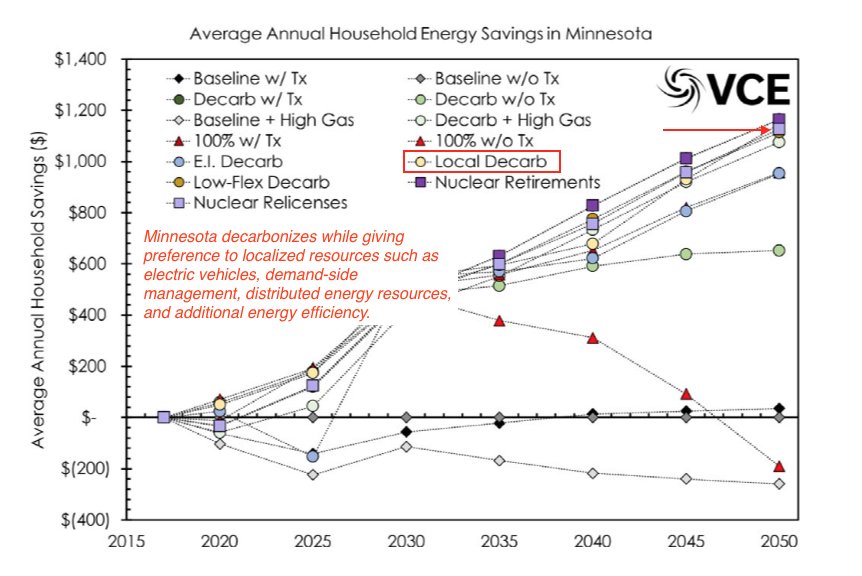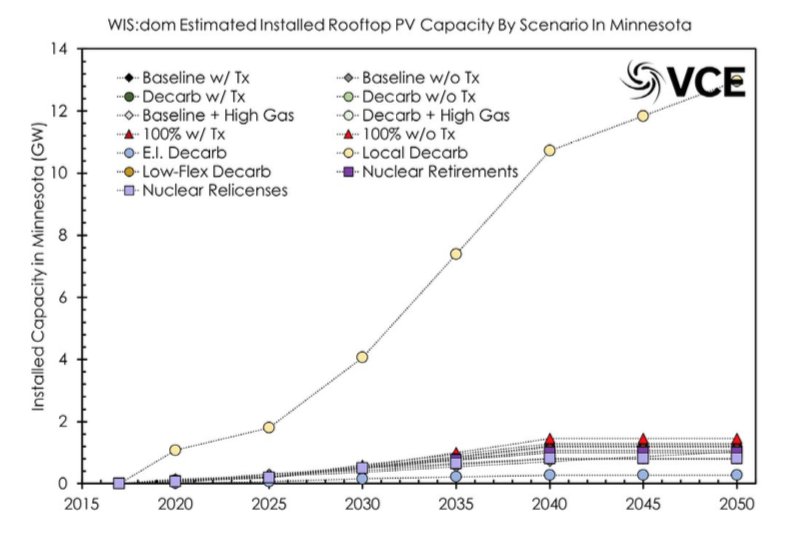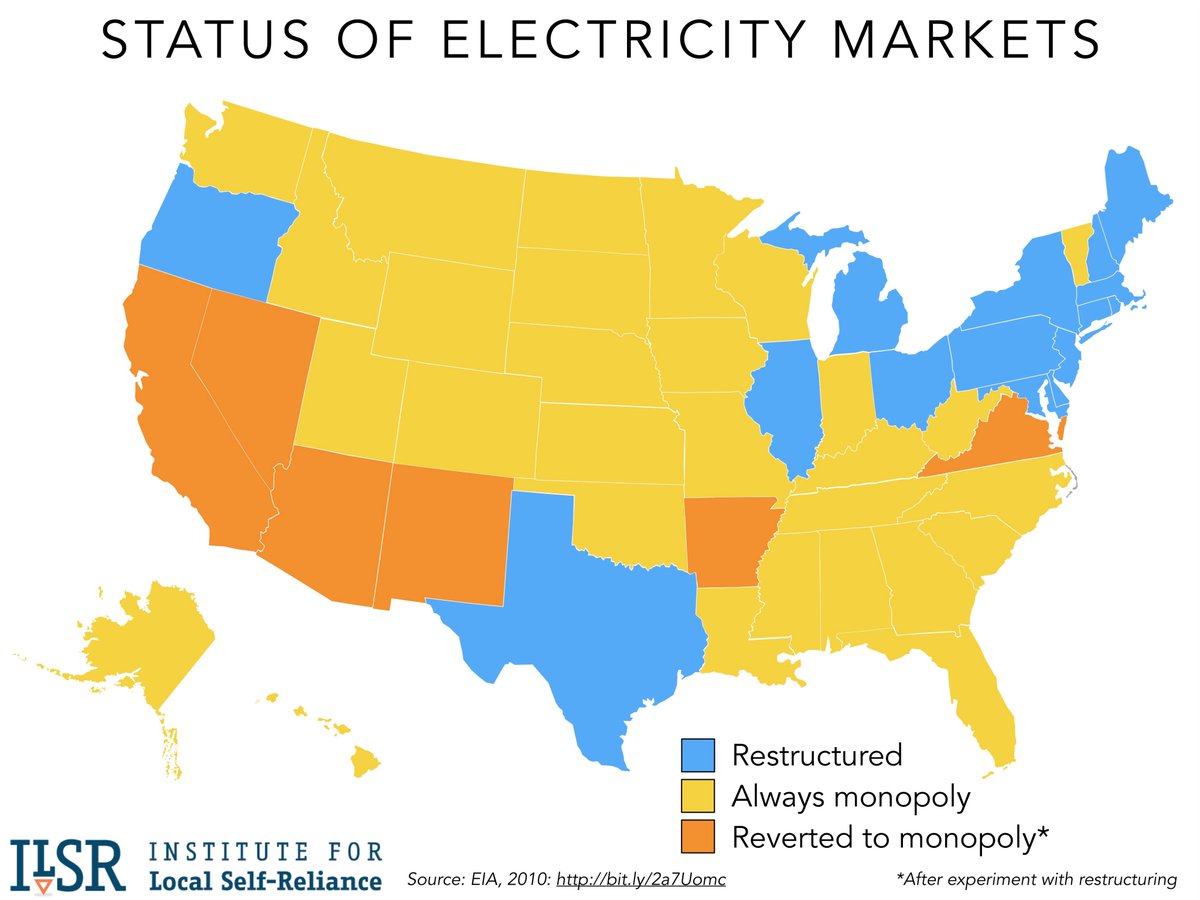
You might have heard about the campaign to Save Solar in California, due to deliberations by state regulators to reduce compensation for solar producers. We're being played by utility lobbyists, my friends. Here's a thread 🧵 #solarenergy #NEM
If you haven't heard about the "utility death spiral," read the infamous Edison Electric Institute report that identified customer-owned solar as an existential threat to the profits for utility shareholders. drive.google.com/file/d/1tsF2Hq…
So, Point 1: if we're debating whether solar customers get compensated adequately, let's keep in mind that utilities see it as their legal obligation to screw over solar customers to protect their market share. This debate is their debate.
Point 1a. For many utilities, it's about solar competing with their power plants, but it also impacts planned utility spend on transmission power lines, distribution upgrades. If they earn on their rate base (99% of U.S. investor-owned utilities), they want less solar.
Point 2: bringing in low-income folks is yet another utility strategy. If you think some consumer advocate woke up one day and said "we better investigate the cost implications of solar customers," you're dreaming. Some utility lobbyist fed them a line.
Summary so far: a debate about a solar "cost shift" is literally pure utility propaganda. Is there a legitimate discussion somewhere in here? Sure. Did we come about it honestly. Ha! If we did, we'd be asking about profit distribution, not just cost allocation.
See Shalanda Baker's excellent essay on the value of solar: "When regulators ask, “What is the value of solar?” embedded at the end of the question, in an invisible parenthetical, are the words, “to the existing system.” repository.uchastings.edu/cgi/viewconten…
Point 3. Even if this argument was raised in good faith (it wasn't), utility rates are littered with cost shifts and subsidies. Here's an excerpt from a presentation about Winter Park's municipal utility. Commercial customers are 20% of customers but pay 50% of utility revenues. 

Point 3a. What's the marginal cost to add a customer to the utility grid? Does that customer actually pay it? No, it's a cost shift.
Point 3b. We have energy assistance for low-income customers. It's a subsidy, a cost shift. Does that make it bad?
Summary: there's nothing new or wrong about having cross subsidies in electric rates, especially when (in the case of low-income rates or solar energy) they serve a larger social purpose.
Point 4. We provide a federal tax subsidy, state sales tax exemptions, and local property tax exemptions for solar equipment because it promotes the social good of jobs, energy savings, pollution-free energy, etc. Why undercut that subsidy with anti-solar rate structures?
Point 4a. No really, think about it. We have bled to pass policy providing federal, state, and local subsidies to get people to *use their own money* to install clean power generation. Why are we contemplating clawbacks proposed by utility lobbyists?
Point 5. Remember landline phone companies? These monopolies were eviscerated by competition from mobile phones because mobile companies built independent networks. That innovative leap happened because the phone companies couldn't leverage their market power (network).
Point 5 cont...mobile companies (logically) built a separate network. But solar customers, offering a similar technological leap forward, don't have that luxury, and the utilities are leveraging every advantage of their market power and monopoly platform.
Point 5. cont...Why are we letting utilities use the public regulatory system to shield their failure to anticipate and accommodate technological innovation? Like landlines, their loss of market share is not our problem to solve. That's on management and shareholders.
Point 6. What should we do instead of debating a "cost shift?" We should leverage good policy and the fact that we, the public, own the utility's franchise to operate. We should force utilities to maximize the value of distributed solar.
Point 6a. Strengthen solar incentives with Direct Pay. Streamline interconnection. Require hosting capacity disclosure. Subsidize distributed storage. Design rates to favor west-facing solar to align with system peak.
There's a lot of excitement about the billions in the Build Back Better bill for clean energy, but millions of individual homes and businesses have ready-to-deploy capital to build clean energy! We just need to design a grid and rate structure to encourage them!
California has 1.3 million solar customers. If they each spent $30k on solar, that's $39 billion in private capital -- more than the entire market cap of PG&E! Leverage that shit! Make the grid that welcomes distributed solar! /END
• • •
Missing some Tweet in this thread? You can try to
force a refresh







